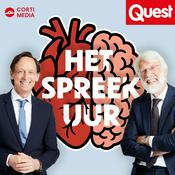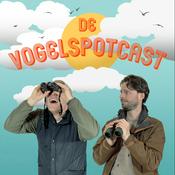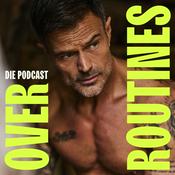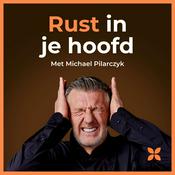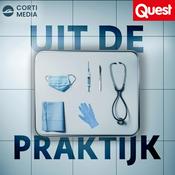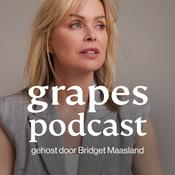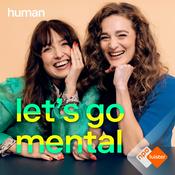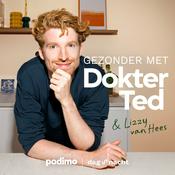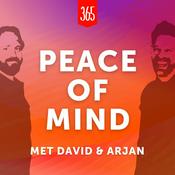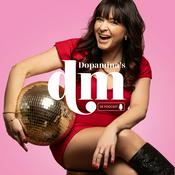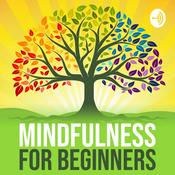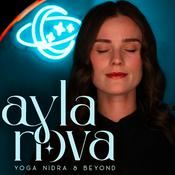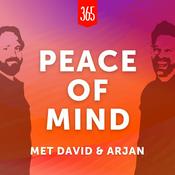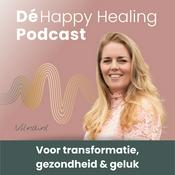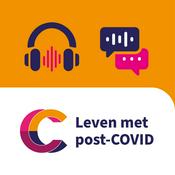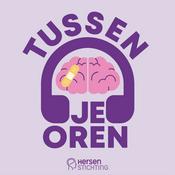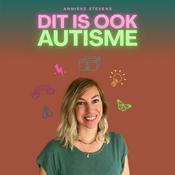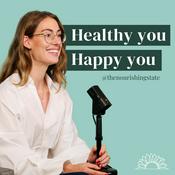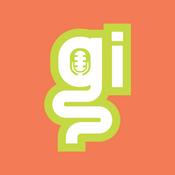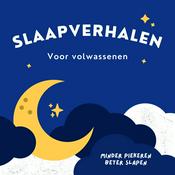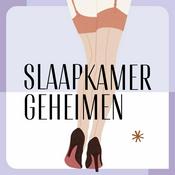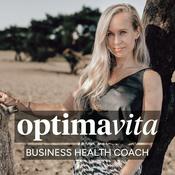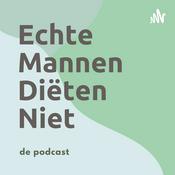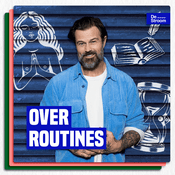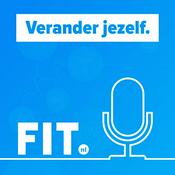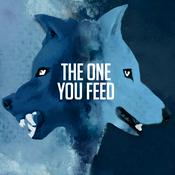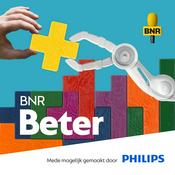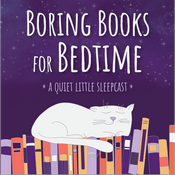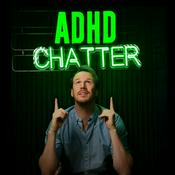Live Well Be Well with Sarah Ann Macklin | Health, Lifestyle, Nutrition
Sarah Ann Macklin
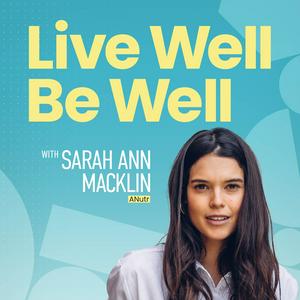
Nieuwste aflevering
385 afleveringen
- FULL podcast here: https://youtu.be/tNoDNnpSkdA
Do you feel like two different people across your cycle? Understanding the brain effects of estrogen and progesterone can help you trust both advisors within you. This clip explores the often overlooked luteal phase, why progesterone matters for mood, sleep, and decision making, and how it's used after concussion to protect the brain. We also touch on perimenopause care and why progesterone isn't just for the uterus, plus emerging questions about neuroprotection and Alzheimer's. Watch the
***
This episode is sponsored by:NOWATCH: The compassionate health trackerConnecting body and mind with unique stress recovery insights so you can live fully today15% off with code LWBW15 at https://nowatch.com/
Mojo: the app for expert-led courses in better sex.Learn from world-class sex therapists and relationship experts with courses tailored to your needs.15% off with code LiveWell15 at mymojo.com/livewellbewell
***
The Great British Veg OutHow to support your gut, energy, and hormones by eating more — not less.
👉 https://sarahmacklin.substack.com/p/the-great-british-veg-outReset Your HealthIf your body feels off after stress, travel, or burnout — this is where to start.
👉 https://sarahmacklin.substack.com/s/reset-your-health-in-30-days
👉 Practical beats perfect.Here’s a free 5-recipe PDF I use to support energy and stress during busy weeks.https://sarahannmacklin.com/5_free_recipes
👉 If this resonates, you can join the thousands who readThe Compassionate Cure each week.https://sarahmacklin.substack.com/
***
Let’s be friends!
📷 Instagram: https://www.instagram.com/sarahannmacklin/📹 Subscribe: http://www.youtube.com/@livewellbewellsarah
🐦 Twitter: https://x.com/SarahAnnMacklin
📱 TikTok: https://www.tiktok.com/@livewellbewellpodcast💌 Newsletter: https://sarahmacklin.substack.com/ Why You Still Can’t Orgasm (The Step-By-Step Guide) | Dr. Laurie Mintz, Sex Therapist
11-2-2026 | 1 u. 19 Min.Why is it that we often feel like we need to solve the mystery of our own bodies in total silence? For so many of us, the path to pleasure has been paved with confusion or even shame, leaving us feeling like there is something broken within us when there truly isn't.
This week on Live Well Be Well, I am sitting down with the pioneering Dr. Laurie Mintz. Laurie is a psychologist and author who is on a mission to close the orgasm gap and help us reclaim our right to feel alive and connected in our most intimate moments.In this conversation, we dismantle the cultural lies that have taught us to prioritize everyone's pleasure except our own.
Here’s what we explore together:
- What the clitoris actually is and why it has been linguistically and scientifically erased for centuries.
- How the myth of the penetrative orgasm is keeping women from experiencing true fulfillment.
- Why your brain is your most powerful sexual organ and how to stop overthinking in the bedroom.
- How to bridge the orgasm gap by moving away from patriarchal scripts and toward pleasure equality.
- Why masturbation is a vital first step in understanding your own unique biological language.
- What it means to be truly in your body and how play can transform your adult health.
- How to navigate the honest and awkward conversations that lead to the most meaningful connections of your life.
- Why information is the ultimate power in reclaiming your body and your joy.
Love,
Sarah Ann 💛
***
This episode is sponsored by:
NOWATCH: The compassionate health trackerConnecting body and mind with unique stress recovery insights so you can live fully today15% off with code LWBW15 at https://nowatch.com/
Mojo: the app for expert-led courses in better sex.Learn from world-class sex therapists and relationship experts with courses tailored to your needs.15% off with code LiveWell15 at mymojo.com/livewellbewell
***
The Great British Veg OutHow to support your gut, energy, and hormones by eating more — not less.
👉 https://sarahmacklin.substack.com/p/the-great-british-veg-outReset Your HealthIf your body feels off after stress, travel, or burnout — this is where to start.
👉 https://sarahmacklin.substack.com/s/reset-your-health-in-30-days👉 Practical beats perfect.Here’s a free 5-recipe PDF I use to support energy and stress during busy weeks.https://open.substack.com/pub/sarahmacklin/p/download-your-free-5-recipes-to-relieve
👉 If this resonates, you can join the thousands who readThe Compassionate Cure each week. https://sarahmacklin.substack.com/
***
Let’s be friends!
📷 Instagram: https://www.instagram.com/sarahannmacklin/📹 Subscribe:http://www.youtube.com/@livewellbewellsarah🐦 Twitter: https://x.com/SarahAnnMacklin
***
If You Enjoyed This Episode, You Might Also Like:
Women's Brain Health: What Science REALLY Says About Hormones, PMS & Menopause | Dr Sarah McKayhttps://youtu.be/aKnS1McNVm8
***
Sign up to Sarah’s Compassionate Cure newsletter:Science Simplified, Health Humanised.Join thousands in exploring actionable insights that prioritise compassion, clarity, and real-life impact.https://sarahmacklin.substack.com/
***
Highlights
00:00 Debunking Myths About Female Orgasm
01:49 The Orgasm Gap: A Cultural Issue
06:43 Understanding the Clitoris
21:44 The Importance of Masturbation
38:23 The Importance of Communication in Relationships
39:38 Key Skills for Effective Communication
41:36 Applying Communication Skills to Sexual Relationships
42:48 Addressing Common Sexual Misconceptions
43:51 The Role of Therapy in Enhancing Communication
45:42 Empowerment Through Sexual Honesty
49:02 The Impact of Socialization on Sexual Communication
01:02:59 Mindfulness and Sexual Pleasure
01:12:24 The Connection Between Mind and Body
***
Love what you’re hearing?My small ask is to please rate and review Live Well Be Well. This helps the show expand and allows me to keep producing these with the best quality guests. It means a huge amount to me, so thank you.- Watch the FULL podcast here: https://youtu.be/qHFymGgsYyECan you do everything right and still face Alzheimer’s risk? It can happen, and we discuss how environmental toxins, metabolic health, and shifting hormones may play a role. This clip explores two grandmothers with opposite lifestyles, highlighting possible factors like hemoglobin A1c, menopause-related drops in estrogen, and other hormones including IGF-1 and thyroid. We also consider genetic resilience and detox capacity, and why relying on luck isn’t wise. Women are addressed directly, with advice to see a good hormone doctor during perimenopause and menopause. ***This episode is sponsored by:NOWATCH: The compassionate health trackerConnecting body and mind with unique stress recovery insights so you can live fully today15% off with code LWBW15 at https://nowatch.com/Mojo: the app for expert-led courses in better sex.Learn from world-class sex therapists and relationship experts with courses tailored to your needs.15% off with code LiveWell15 at mymojo.com/livewellbewell***The Great British Veg OutHow to support your gut, energy, and hormones by eating more — not less.👉 https://sarahmacklin.substack.com/p/the-great-british-veg-outReset Your HealthIf your body feels off after stress, travel, or burnout — this is where to start.👉 https://sarahmacklin.substack.com/s/reset-your-health-in-30-days
👉 Practical beats perfect.Here’s a free 5-recipe PDF I use to support energy and stress during busy weeks.https://sarahannmacklin.com/5_free_recipes👉 If this resonates, you can join the thousands who readThe Compassionate Cure each week.https://sarahmacklin.substack.com/***Let’s be friends!📷 Instagram: https://www.instagram.com/sarahannmacklin/📹 Subscribe: http://www.youtube.com/@livewellbewellsarah🐦 Twitter: https://x.com/SarahAnnMacklin📱 TikTok: https://www.tiktok.com/@livewellbewellpodcast💌 Newsletter: https://sarahmacklin.substack.com/ - Watch the FULL podcast here: https://youtu.be/yZDzsfNjG_M
Curious what Akkermansia actually does for your health? It’s discussed here as a keystone gut microbe linked to improved insulin sensitivity, lower A1C in clinical studies, GLP-1 release and healthier blood vessels, with associations to cancer immunotherapy response. This clip explores the gut brain circulation connection, how metabolism and energy relate to this microbe, and why people considering immunotherapy might also focus on gut health. We also touch on the importance of discussing immunotherapy with an oncologist and staying within medical advice boundaries.
***
This episode is sponsored by:
NOWATCH: The compassionate health trackerConnecting body and mind with unique stress recovery insights so you can live fully today15% off with code LWBW15 at https://nowatch.com/
Mojo: the app for expert-led courses in better sex.Learn from world-class sex therapists and relationship experts with courses tailored to your needs.15% off with code LiveWell15 at mymojo.com/livewellbewell
***
The Great British Veg OutHow to support your gut, energy, and hormones by eating more — not less.
👉 https://sarahmacklin.substack.com/p/the-great-british-veg-outReset Your HealthIf your body feels off after stress, travel, or burnout — this is where to start.
👉 https://sarahmacklin.substack.com/s/reset-your-health-in-30-days
👉 Practical beats perfect.Here’s a free 5-recipe PDF I use to support energy and stress during busy weeks.https://sarahannmacklin.com/5_free_recipes
👉 If this resonates, you can join the thousands who readThe Compassionate Cure each week.https://sarahmacklin.substack.com/
***
Let’s be friends!
📷 Instagram: https://www.instagram.com/sarahannmacklin/📹 Subscribe: http://www.youtube.com/@livewellbewellsarah
🐦 Twitter: https://x.com/SarahAnnMacklin
📱 TikTok: https://www.tiktok.com/@livewellbewellpodcast💌 Newsletter: https://sarahmacklin.substack.com/ Why Compatibility is Overrated: Alain de Botton’s Guide to Relationships That Last
04-2-2026 | 1 u. 40 Min.We spend so much of our lives trying to be impressive. We polish our edges and hide our cracks because we’re terrified that being "real" means being weak. But what if the very things we are hiding are actually the only bridges to real connection? It is a scary thought, but one that completely changes how we show up in the world.
Here’s what we explore together:
- Why being "invulnerable" is sometimes just as important as being open and how to know the difference.
- How accepting your own foolishness can actually make you invincible to humiliation.
- Why we feel "boring" with some people and alive with others and why it is not your fault.
- How to use curiosity to metabolize pain and crisis into understanding.
- Why following your "gut" in love can sometimes lead you straight into disaster.
- Why the truth sometimes needs to be delivered in "small pieces" to be heard.
- Why a functioning relationship is the most difficult achievement of a human life.
- How to find a path that fits your unique nature in a world that wants you to conform.
Love, Sarah Ann 💛
***
This episode is sponsored by:
NOWATCH: The compassionate health tracker
Connecting body and mind with unique stress recovery insights so you can live fully today
15% off with code LWBW15 at https://nowatch.com/
Mojo: the app for expert-led courses in better sex.
Learn from world-class sex therapists and relationship experts with courses tailored to your needs.
15% off with code LiveWell15 at mymojo.com/livewellbewell
***
The Great British Veg Out
How to support your gut, energy, and hormones by eating more — not less.
👉 https://sarahmacklin.substack.com/p/the-great-british-veg-out
Reset Your Health
If your body feels off after stress, travel, or burnout — this is where to start.
👉 https://sarahmacklin.substack.com/s/reset-your-health-in-30-days
👉 Practical beats perfect.
Here’s a free 5-recipe PDF I use to support energy and stress during busy weeks.
https://open.substack.com/pub/sarahmacklin/p/download-your-free-5-recipes-to-relieve
👉 If this resonates, you can join the thousands who read
The Compassionate Cure each week. https://sarahmacklin.substack.com/
***
Let’s be friends!
📷 Instagram: https://www.instagram.com/sarahannmacklin/
📹 Subscribe:http://www.youtube.com/@livewellbewellsarah
🐦 Twitter: https://x.com/SarahAnnMacklin
📱 TikTok: https://www.tiktok.com/@livewellbewellpodcast
💌 Newsletter: https://sarahmacklin.substack.com/
***
If You Enjoyed This Episode, You Might Also Like:
The 7 Pillars to Finding Genuine Love Beyond Dating Apps | Francesca Hogihttps://youtu.be/aGqlB61ldoA
***
Sign up to Sarah’s Compassionate Cure newsletter:
Science Simplified, Health Humanised.
Join thousands in exploring actionable insights that prioritise compassion, clarity, and real-life impact.
https://sarahmacklin.substack.com/
***
Highlights
00:00 Intro
02:03 The Vulnerability Paradox: When to Put Your Wall Up
05:26 Why You Should Embrace Being an “Idiot” & Letting Go of Shame
10:22 Mastering Open Communication in Any Relationship
15:36 The Hard Truth About Modern Relationship Challenges
26:16 The Best Question to Ask on a First Date
28:40 Heartbreak and Its Aftermath
37:22 Dealing with Criticism & Managing High Sensitivity
41:12 Reconnecting with Our Bodies
47:38 The Importance of Therapy and Self-Awareness
52:26 The Role of Compassion in Psychotherapy
57:53 Why We Run from Ourselves
01:05:11 Friendship and Emotional Support
01:09:55 The Gift of Vulnerability: Building Deeper Connections
01:14:28 Redefining Success Beyond Money and Status
01:20:17 Communication Secrets for Healthy Long-Term Relationships
01:26:46 Navigating Attachment Styles
01:34:45 The Power of Love and Practice
***
Love what you’re hearing?
My small ask is to please rate and review Live Well Be Well. This helps the show expand and allows me to keep producing these with the best quality guests. It means a huge amount to me, so thank you.
Meer Gezondheid en fitness podcasts
Trending Gezondheid en fitness -podcasts
Over Live Well Be Well with Sarah Ann Macklin | Health, Lifestyle, Nutrition
Health shouldn’t feel this hard.
I’ve lived it, studied it, and now I’m here to help make it make sense.
A smarter, more human way to live well.
Subscribe now, and start living well, for real.
Instagram: @sarahannmacklin
Newsletter: https://substack.com/@sarahannmacklin
Website: sarahannmacklin.com
#LiveWellBeWell
Podcast websiteLuister naar Live Well Be Well with Sarah Ann Macklin | Health, Lifestyle, Nutrition, Het Spreekuur en vele andere podcasts van over de hele wereld met de radio.net-app

Ontvang de gratis radio.net app
- Zenders en podcasts om te bookmarken
- Streamen via Wi-Fi of Bluetooth
- Ondersteunt Carplay & Android Auto
- Veel andere app-functies
Ontvang de gratis radio.net app
- Zenders en podcasts om te bookmarken
- Streamen via Wi-Fi of Bluetooth
- Ondersteunt Carplay & Android Auto
- Veel andere app-functies


Live Well Be Well with Sarah Ann Macklin | Health, Lifestyle, Nutrition
Scan de code,
download de app,
luisteren.
download de app,
luisteren.

